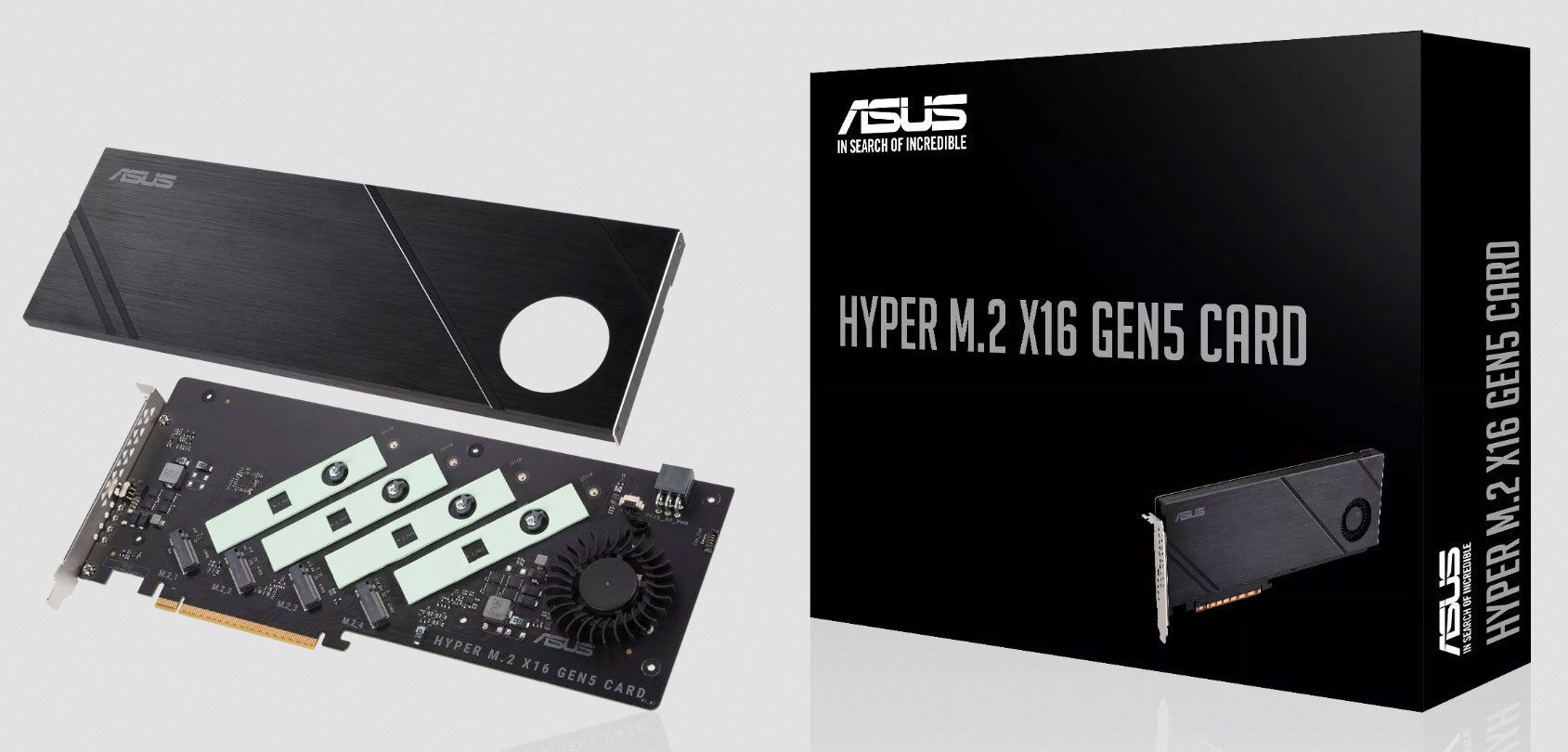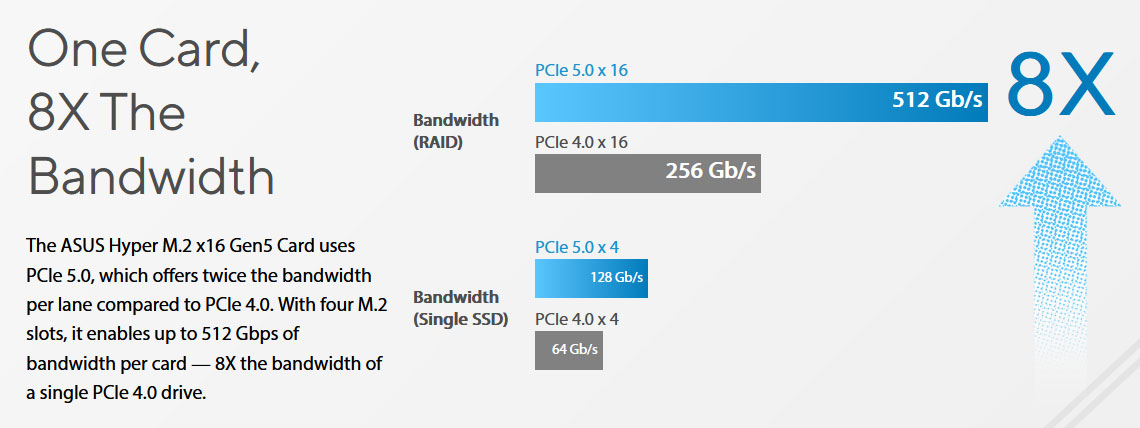Asus has quietly launched a new high-performance storage adaptor. Twitter/X storage sleuth torn_us spotted that the Asus Hyper M.2 x16 Gen5 Card product pages have appeared. This is a significant update to the Hyper M.2 x16 Gen 4 card with up to double the potential bandwidth, thus supporting up to 512 Gbps if your platform is up to it.
The product description says that the Asus Hyper M.2 x16 Gen5 Card allows the fitting of up to four NVMe M.2 SSDs. Users can mix and match storage devices. Official Asus specs indicate users will be combining PCIe 5.0/4.0 M.2 drives, and M.2 2242, 2260, 2280, and 22110 devices can all be fitted in any of the four slots with Q-Latch mechanism for easy installation and removal.

With the newest and fastest drives, there may be some concern over power and cooling. However, Asus has fitted an auxiliary 6-pin PCIe power connector to this card and asserts that the onboard two-phase power solution delivers up to 14W to each drive, which is more than sufficient.
With the shroud of the card, you can see the four M.2 slots and a cooling fan. This works like a blower-style graphics card fan, taking in cool air from the fan end of the card and pushing it over the M.2 card slots to exhaust out of the highly perforated fixing bracket. Asus indicates that this is enough, combined with top and bottom M.2 thermal pads, to “reduce temperature-induced throttling during heavy, sustained data transfers.” The fan can benefit from extensive control parameters from the Asus Fan Xpert 4 software. You can also turn the fan on or off via the small button on the card’s rear I/O area.

As for performance, the headlining 512 Gbps bandwidth comes from four fast PCIe 5.0 M.2 NVMe drives working in RAID 0 mode – in a striped aggregation. The chart above shows the impressive performance uplifts possible with this new PCIe storage card – up to 128 Gbps per slot.
Look Before You Leap
There are several things to consider before purchasing one of these Asus Hyper M.2 x16 Gen5 (or Gen4) Cards. Asus published a FAQ outlining the capabilities of currently supported AMD and Intel motherboards about M.2 drives hosted on add-in cards. It highlights in the FAQ that the “maximum M.2 SSDs support will vary depending on different CPUs.” Your motherboard must support PCIe bifurcation.
The FAQ compatibility table also shows, for example, that systems using Intel Core family CPUs and the latest motherboards and graphics cards can only use two of the four M.2 storage slots at once (as a max 16 CPU PCIe 5.0 lanes are available) and benefit from the full potential of the hosted drives. In contrast, AMD Ryzen users with the latest platforms can use all four slots (max 28 CPU PCIe 5.0 lanes). Asus also recommends all users update to the latest motherboard BIOS.
Asus has confirmed that the Asus Hyper M.2 x16 Gen5 Card will cost $79.99, and channel availability is scheduled for seven to 14 days.






